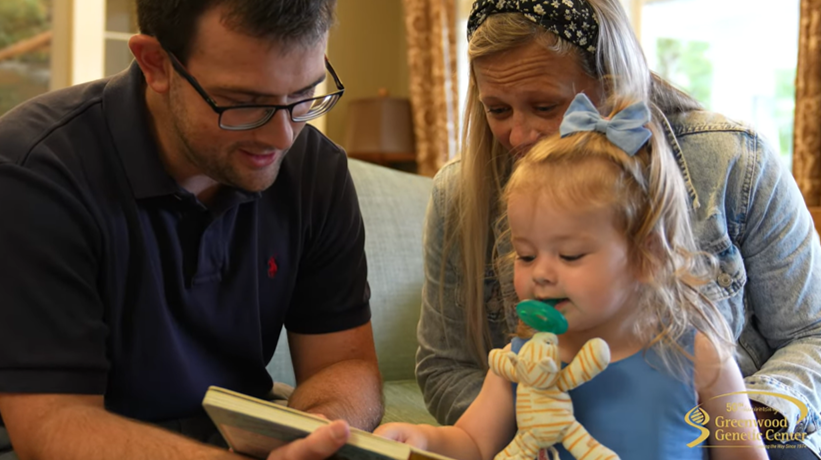The Hearing Loss NGS Panel on the genome backbone includes sequencing & CNV analysis of 147 nuclear genes intended for patients with a diagnosis of Hearing Loss. This panel also includes targeted analysis for variants specifically associated with hearing loss in 10 mitochondrial genes. This molecular test is useful to confirm the diagnosis and to identify the disease-causing mutations within a family to allow for carrier testing and prenatal diagnosis.
8 weeks
81430
$3,500
Hearing loss comprises a very heterogeneous group of diagnoses and is one of the most common findings at birth, affecting about 1 in every 500 newborns with the prevalence increasing with age, (Morton & Nance 2006). Deafness is often categorized and described based on 3 key components: conductive versus sensorineural, syndromic or nonsyndromic, and prelingual or postlingual. While some hearing loss can be environmental, multifactorial, more than 50% of prelingual deafness is attributed to genetic causes. With a large proportion of deafness due genetics and significant genetic heterogeneity, it is important to have an efficient and comprehensive testing option for patients. Identifying the underlying molecular etiology of the hearing loss has important implications for the patients and their families. A specific diagnosis can provide prognostic insights and guide treatment of the hearing loss as well as facilitate monitoring for additional associated health concerns. A clear diagnosis also prevents further, unnecessary testing and gives valuable recurrence risk information.
Next Generation Sequencing
This panel covers the coding regions of the listed nuclear genes and the flanking intronic sequences. Promoter, 3' untranslated sequences, and deep intronic sequences are also covered, but only known disease-causing variants in these regions will be reported. Targeted analysis is performed for specific variants in ten mitochondrial genes that have been associated with hearing loss; however, this does not constitute a full analysis of the mitochondrial genome (please contact the Molecular laboratory for more information). Variants identified on the panel are confirmed with Sanger sequencing if they do not meet certain quality thresholds. Large deletions and duplications (CNVs) affecting the genes of the panel can be detected; however, due to defined settings in the analysis software, CNVs smaller than 2-kb may not be identified (for example, some small exonic level copy number changes may not be identified). Please note that certain types of genetic alterations including trinucleotide repeat expansions, methylation abnormalities, and balanced rearrangements (e.g., inversions, reciprocal translocations) may not be detected by the current analysis. Due to presence of a pseudogene, analysis of the STRC gene is limited to the detection of large deletions only. If there is a concern for a sequence variant in STRC, the Molecular Laboratory offers STRC gene-specific sequencing.
The preferred sample type is 3-5ml of peripheral blood collected in an EDTA (purple top) tube. Extracted DNA and saliva are also accepted for this test. If saliva is submitted, and the extracted DNA is below quality control, then you will be contacted to submit a blood sample or the panel can be completed on an exome backbone. Saliva samples must be submitted in an approved saliva kit. Contact the lab to receive a saliva kit or to have one sent to your patient.
The specimen should be kept at room temperature and delivered via overnight shipping. If shipment is delayed by one or two days, the specimen should be refrigerated and shipped at room temperature. Do not freeze the specimen. Samples collected on Friday can be safely designated for Monday delivery.
If the pathogenic mutation(s) are identified in an affected individual using this panel, prenatal diagnosis is available for future pregnancies. Sanger sequencing will be used for prenatal diagnosis where there is a known familial mutation. Additional fees for cell culture and maternal cell contamination studies are required for all prenatal molecular tests. Contact the laboratory prior to sending a prenatal specimen.
Call our laboratory at 1-800-473-9411 or contact one of our Laboratory Genetic Counselors for assistance.
Robin Fletcher, MS, CGC
Falecia Thomas, MS, CGC
Alex Finley, MS, CGC
